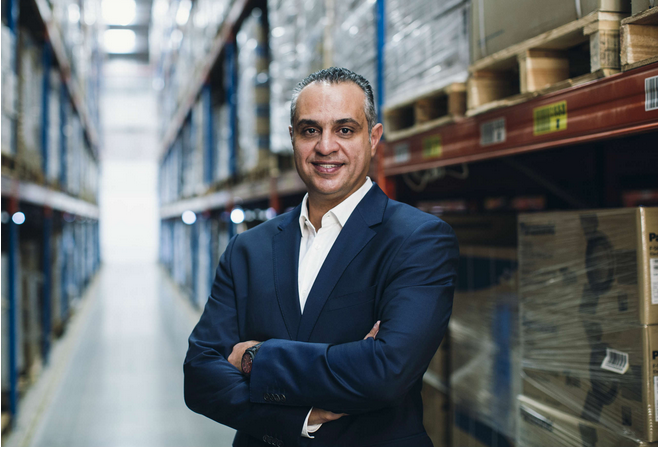Aramex CEO: SMEs’ overlooked role in economic development
SMEs can lift us out of difficult times, writes Aramex’s Hussein Hachem

The consensus is that 2015 was a bleak year for emerging markets. As we look towards 2016, most indications are that next year will also be challenging, both globally and for the region.
What does this mean for small and medium enteprises?
SMEs by nature are often misunderstood. They are young, small, lacking brand recognition and perceived to be at the fringes of the economy. However the reality is that the most powerful ideas responsible for reshaping entire industries have often come from the industry fringe, start-ups and entrepreneurs. In the face of economic turmoil, SMEs can play an important role in lifting us out of these difficult times.
I believe there are three key areas where we can take action to help support and develop SMEs in Dubai.
First, financing and access to capital. From my experience working in the logistics industry, the most dynamic area of the sector impacting my business is the growth of e-commerce. This is a sector SMEs are actively trying to enter, shifting consumer purchasing patterns away from traditional retail.
Most of us can remember when Amazon was considered a “start-up.” Now the business has made its way to the top of Forbes’ ‘world’s most innovative companies’ list. It is difficult, however, for SMEs to establish a solid financial footing because receiving bank loans is often challenging. Many young entrepreneurs have no established credit history or leverageable assets. Online payment gateways are also restrictive, usually costing Dhs 300,000 and requiring a bank guarantee, which can prevent SMEs from securing the up-front capital needed to start trading.
We need to find solutions to provide SMEs with more options for accessing capital. If we can give them the necessary funding to run their operations, entrepreneurs will spend less time searching for financing and more time innovating and growing their business.
Second, training and mentorship. There has been a lot of talk about entrepreneurial education. I believe the most effective ‘education’ occurs when mentors are involved. Working side by side with young, aspiring entrepreneurs gives the opportunity for immediate feedback and direction. The more that established businesses can interact directly with start-ups and SMEs, the more effective the educational experience will be and the sooner they will become a benefit to the economy.
Consider Wamda, a platform led by experts who provide mentorship and training for start-ups and example of how business leaders can empower entrepreneurs region wide. This approach has the greatest impact because businesses can potentially gain customers and partners through the mentoring process. From my experience, I have found that this adds to my understanding of the wider global economy, the industry I work in, the innovations coming into the market and the needs of my customers.
Third, SME safety nets. Being at the fringe of the economy brings higher risk. To this end we need to create structures that lower risk, identify areas of concern earlier and decrease the possibility of failure. There is clear market demand region wide for training and development programmes in the field of e-commerce aimed at helping start-ups launch their businesses. We need to help e-commerce SMEs understand how to initiate online trade, set up online payment gateways and identify potential customers, businesses and logistics partners. These solutions will help SMEs avoid potentially dangerous financing or business development issues before they become problematic. We also need to move forward with changes in the way insolvency and bankruptcy are handled by developing financial work-out programs and other options for SMEs if they are having financial difficulties.
If we can get these three areas of focus right, we will strengthen the current position of SMEs in Dubai who will then meaningfully contribute to economic development. In the future, Dubai could also become the Middle East’s SME incubator, attracting start-ups and entrepreneurs from across the region to set up operations locally. This approach is very much in line with Dubai’s vision to be a global hub for innovation, creativity and business development, all of which contribute to a more diversified economy and sustainable future for the UAE.
Hussein Hachem is CEO of Aramex
